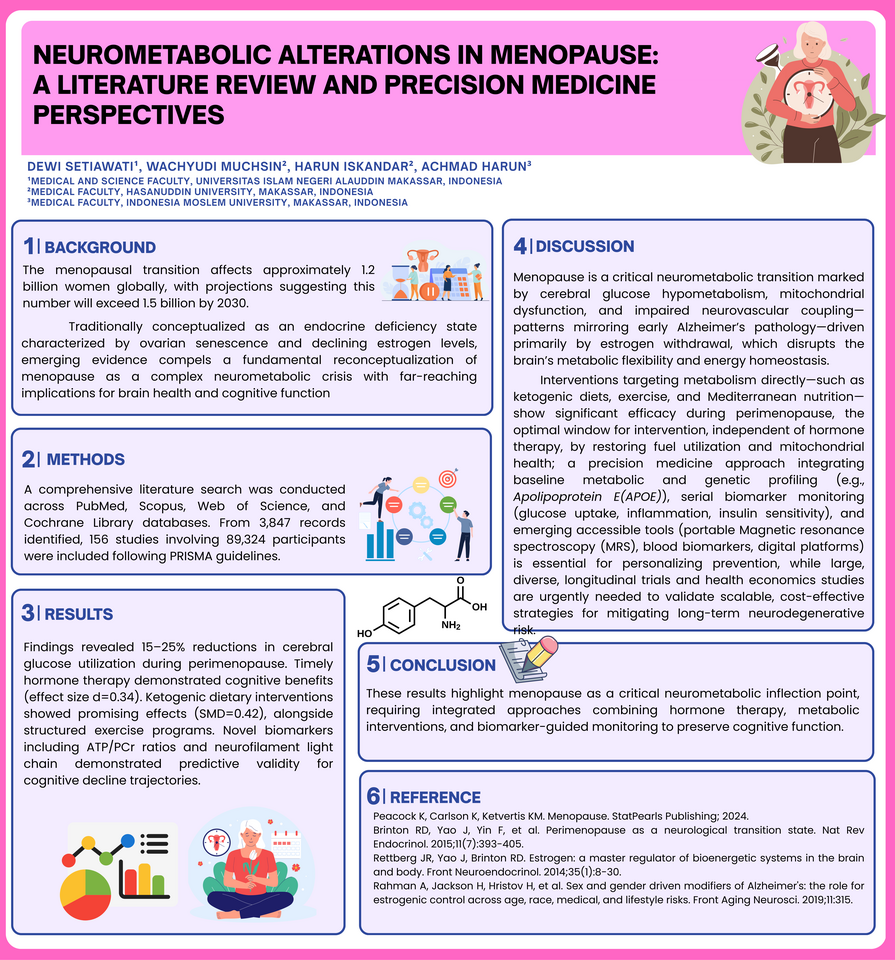Neurometabolic Alterations in Menopause: A Literature Review and Precision Medicine Perspectives
Published in Biomedical Research

Neurometabolic Alterations in Menopause: A Literature Review and Precision Medicine Perspectives
Authors
Dewi Setiawati¹*, Wachyudi Muchsin², Harun Iskandar², Achmad Harun³
¹Medical and Science Faculty, Universitas Islam Negeri Alauddin Makassar, Indonesia
²Medical Faculty, Hasanuddin University, Makassar, Indonesia
³Medical Faculty, Indonesia Moslem University, Makassar, Indonesia
ABSTRACT
Background: Menopause is increasingly recognized as a neurometabolic transition rather than a purely endocrine event.
Objective: This systematic review examined mechanisms linking estrogen decline to cerebral metabolic dysfunction, neuroimaging biomarkers, and intervention strategies.
Methods: A comprehensive literature search was conducted across PubMed, Scopus, Web of Science, and Cochrane Library databases. From 3,847 records identified, 156 studies involving 89,324 participants were included following PRISMA guidelines.
Results: Findings revealed 15–25% reductions in cerebral glucose utilization during perimenopause. Timely hormone therapy demonstrated cognitive benefits (effect size d=0.34). Ketogenic dietary interventions showed promising effects (SMD=0.42), alongside structured exercise programs. Novel biomarkers including ATP/PCr ratios and neurofilament light chain demonstrated predictive validity for cognitive decline trajectories.
Conclusion: These results highlight menopause as a critical neurometabolic inflection point, requiring integrated approaches combining hormone therapy, metabolic interventions, and biomarker-guided monitoring to preserve cognitive function.


Please sign in or register for FREE
If you are a registered user on Research Communities by Springer Nature, please sign in